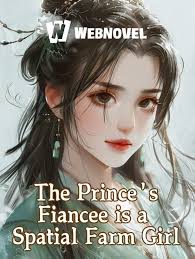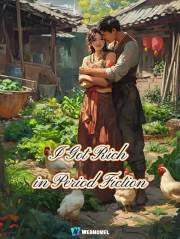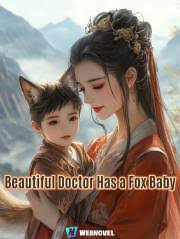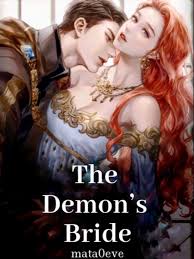The Story in 3 Sentences
A modern girl named Xiaoxiao reincarnates into the body of a neglected child in a historical-fantasy world, only to discover she possesses a rare spatial farm that grants her control over food production and cultivation far beyond ordinary means.
Her life shifts dramatically when she is unexpectedly named the fiancée of the formidable young Prince Xiao Moxi, thrusting her from rural obscurity into the treacherous heart of imperial politics and noble rivalries.
Guided by her resourcefulness, her spatial gifts, and the fierce loyalty of her rediscovered family—especially her mother General Xiao Ran—she navigates courtly schemes, war threats, and societal expectations to carve out a future defined not by fate, but by her own hands.
Why It Stands Out
1. From Dirt to Dynasty: The Ultimate Farm-to-Throne Fantasy
Few stories blend humble agrarian roots with high-stakes royal drama as seamlessly as this one. The spatial farm isn’t just a gimmick—it’s the engine of economic, social, and even military transformation. Xiaoxiao doesn’t wait for rescue; she grows her way to power, turning seeds into strategy and harvests into leverage. Her journey redefines what it means to be “self-made” in a world where birth dictates destiny.
2. Family as Foundational Power
While many romance-fantasy novels treat family as backdrop or obstacle, this story makes kinship its emotional and tactical core. The Ning family’s reconnection with their lost daughter isn’t a footnote—it’s a driving force. From brothers like Ning Anhui who evolve from skeptical youths to devoted protectors, to Xiao Ran’s unwavering maternal ferocity, the novel argues that true strength blooms in the soil of belonging.
3. Villains with Depth, Not Just Drama
Antagonists like Zuo Qingyan aren’t mere catty nobles; they embody systemic prejudice and the fragility of status in a changing world. Even the so-called “Villain Empress” receives a nuanced arc, revealing how fear and mistrust can warp even those in the highest seats. The story avoids cartoonish evil, instead showing how insecurity, ambition, and tradition fuel conflict—making victories feel earned, not just convenient.
Characters That Leave a Mark
There’s Xiao Ran – the legendary female general whose battlefield prowess is matched only by her fierce, unyielding love for her long-lost daughter; she doesn’t just reclaim her child—she reshapes the empire’s power structure to protect her.
You’ll meet Ning Anhui, who transforms from a somewhat aimless younger brother into a capable scholar and loyal family pillar, his growth mirroring the novel’s theme that potential flourishes with support and purpose.
And Zuo Qingyan? They’re the one who personifies aristocratic disdain turned venomous jealousy, using every social weapon at her disposal to undermine Xiaoxiao—yet ultimately exposing the hollowness of a hierarchy built on exclusion.
The Flaws Fans Debate
Some readers find the middle chapters overly focused on domestic farming details, slowing the momentum of the political and romantic plotlines.
Critics note that certain antagonists, despite nuanced setups, occasionally revert to repetitive scheming without sufficient evolution.
A segment of the fanbase argues the spatial system’s near-limitless utility occasionally borders on deus ex machina, resolving complex conflicts too neatly through agricultural abundance.
Must-Experience Arcs
Ch. 1–50: Lost Daughter, Found Soil – Xiaoxiao awakens in a starving village, discovers her spatial farm, and begins rebuilding her life with ingenuity and grit, laying the foundation for everything to come.
Ch. 180–250: The Fiancée’s Trial – Officially named the prince’s betrothed, she faces courtly sabotage, public scrutiny, and family reunification, all while using her farm to outmaneuver rivals and feed armies.
Ch. 400–480: Throne and Harvest – As war looms and succession crises erupt, Xiaoxiao’s spatial gifts become strategic assets; she brokers peace through food diplomacy and secures her family’s legacy, culminating in a satisfying, earned conclusion.
Killer Quotes
“Seeds don’t care about your title. They only ask for care, time, and truth.”
“Power isn’t taken—it’s grown, one honest harvest at a time.”
“In a world that names you worthless, feed yourself first. Then feed the future.”
Cultural Impact
The novel sparked a micro-trend in webnovel communities for “spatial farm girl” protagonists, blending isekai tropes with xianxia-style resource cultivation.
Fan artists frequently depict Xiaoxiao holding a basket of glowing vegetables beside Prince Xiao Moxi, symbolizing the union of earth and empire.
Readers on Webnovel and NovelUpdates praised its “anti-damsel” energy, with threads debating how it subverts traditional harem and noble romance expectations.
Final Verdict
Start Here If You Want:
A feel-good fantasy where intelligence and kindness are the ultimate power-ups.
A romance built on mutual respect, not just attraction or fate.
A story that celebrates family, food, and female agency without sacrificing plot or stakes.
Study If You Love:
Narratives that use economic systems—like farming and trade—as central drivers of political change.
Reincarnation tales that focus on community-building rather than solo domination.
Gender dynamics in historical-fantasy settings where women wield influence through non-traditional means.
Avoid If You Prefer:
Fast-paced action with minimal slice-of-life interludes.
Stories where the protagonist remains passive or dependent on romantic leads.
Plots that avoid systemic critique of class, nobility, or inherited privilege.





